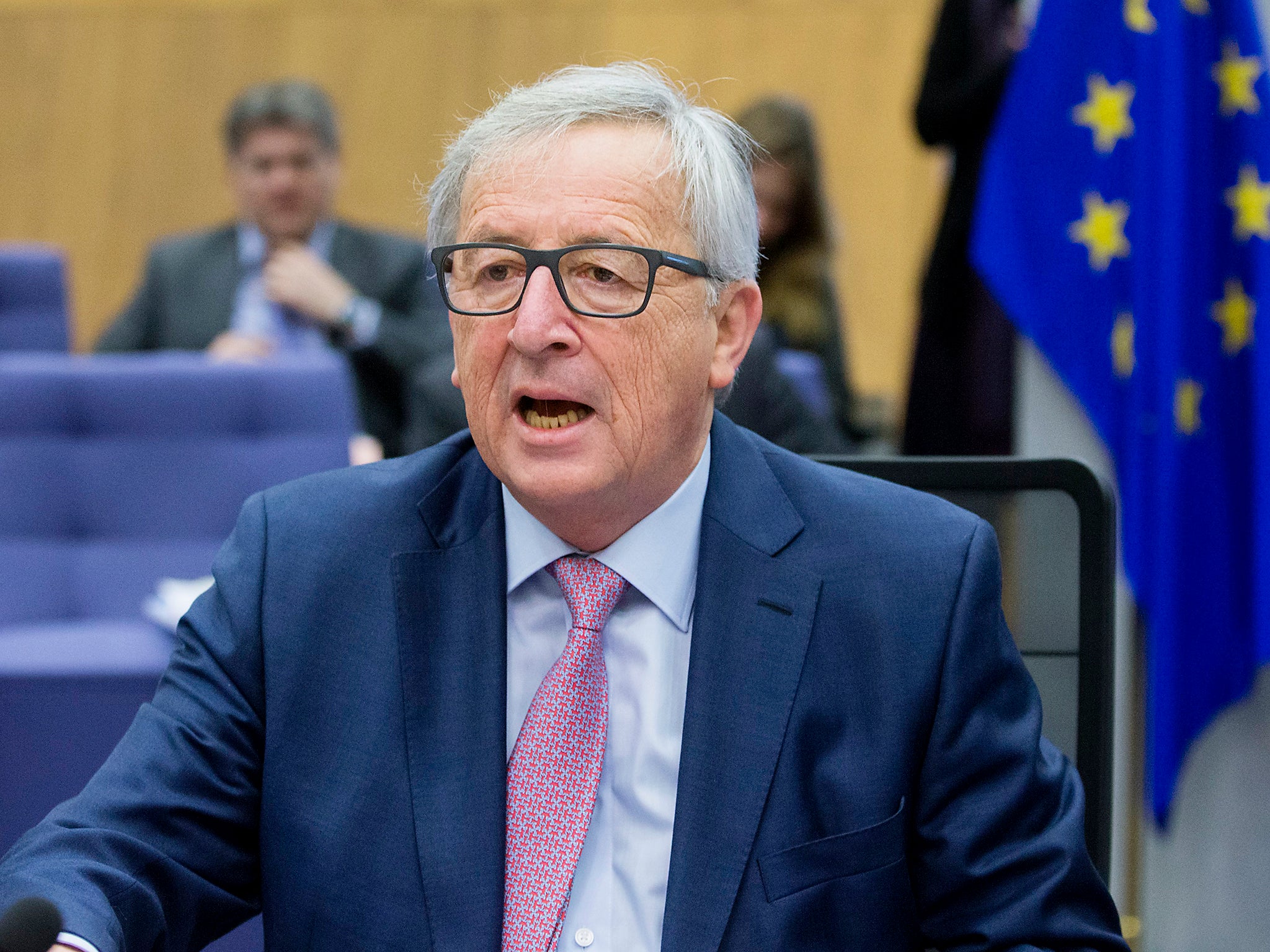Jean-Claude Juncker doesn't want Northern Ireland and Republic to have post-Brexit hard border
The EU will work with Ireland to 'minimise the impact' of Brexit, says Commission president

Your support helps us to tell the story
From reproductive rights to climate change to Big Tech, The Independent is on the ground when the story is developing. Whether it's investigating the financials of Elon Musk's pro-Trump PAC or producing our latest documentary, 'The A Word', which shines a light on the American women fighting for reproductive rights, we know how important it is to parse out the facts from the messaging.
At such a critical moment in US history, we need reporters on the ground. Your donation allows us to keep sending journalists to speak to both sides of the story.
The Independent is trusted by Americans across the entire political spectrum. And unlike many other quality news outlets, we choose not to lock Americans out of our reporting and analysis with paywalls. We believe quality journalism should be available to everyone, paid for by those who can afford it.
Your support makes all the difference.The EU does not want a "hard border" between Northern Ireland and the Republic as a result of Brexit, Jean-Claude Juncker has said.
The European Commission president was speaking after meeting with Irish Taoiseach Enda Kenny in Brussels.
According to RTE, he said: "During the Brexit negotiations, the EU and Ireland must work together to minimise the impact. We don't want hard borders between Northern Ireland and Ireland."
However, the Irish Government has begun identifying possible locations for checkpoints along the border with Northern Ireland, as fears grow of a "hard Brexit".
Preparations are underway for the return of a hard border—despite Theresa May’s insistence that the move will not be necessary even after EU withdrawal is completed.
Internal documents uncovered by the Irish Examiner showed officials in Dublin fears that full “red and green channel” customs points may be needed.
Those checks would be introduced in Louth, Monaghan, Cavan, Leitrim, and Donegal, with the M1 motorway between Dublin and Belfast also likely to be a focus for customs officials.
The potential move was then confirmed by Michael Noonan, the finance minister, in evidence to an Irish parliamentary committee.
Mr Noonan pointed out that both London and Dublin said they did not want to introduce a hard border, but that would require the agreement of the EU as well.
“Even though it is the intent of the two jurisdictions involved, we still have to get it across the line in Europe and that might be five or six years down the line,” he said in a later interview.
Join our commenting forum
Join thought-provoking conversations, follow other Independent readers and see their replies
Comments